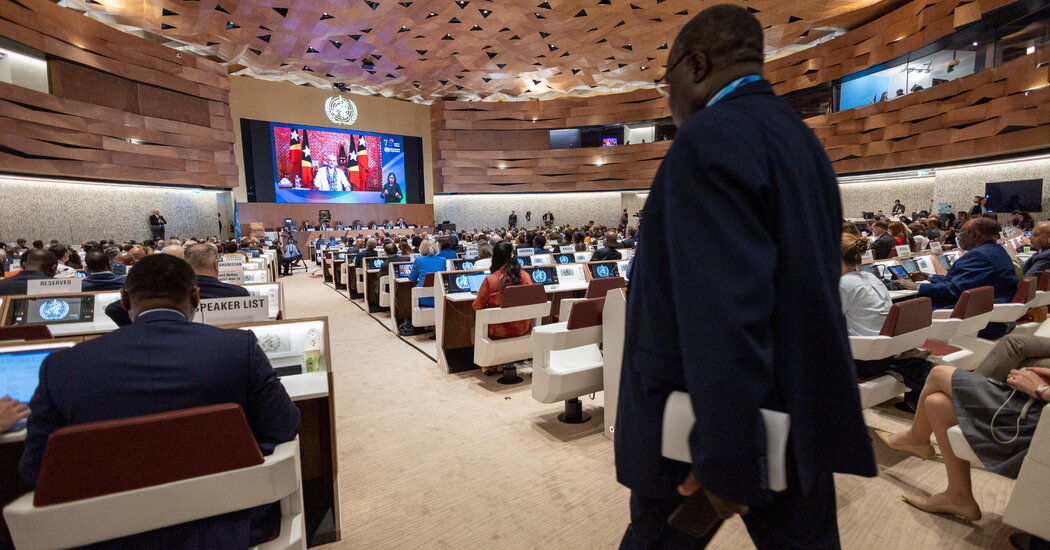Negotiators plan to ask for more time. Among the sticking points are equitable access to vaccines and financing to set up surveillance systems.
Countries around the globe have failed to reach consensus on the terms of a treaty that would unify the world in a strategy against the inevitable next pandemic, trumping the nationalist ethos that emerged during Covid-19.
The deliberations, which were scheduled to be a central item at the weeklong meeting of the World Health Assembly beginning Monday in Geneva, aimed to correct the inequities in access to vaccines and treatments between wealthier nations and poorer ones that became glaringly apparent during the Covid pandemic.
Although much of the urgency around Covid has faded since the treaty negotiations began two years ago, public health experts are still acutely aware of the pandemic potential of emerging pathogens, familiar threats like bird flu and mpox, and once-vanquished diseases like smallpox.
“Those of us in public health recognize that another pandemic really could be around the corner,” said Loyce Pace, an assistant secretary at the Department of Health and Human Services, who oversees the negotiations in her role as the United States liaison to the World Health Organization.
Negotiators had hoped to adopt the treaty next week. But canceled meetings and fractious debates — sometimes over a single word — stalled agreement on key sections, including equitable access to vaccines.
The negotiating body plans to ask for more time to continue the discussions.
“I’m still optimistic,” said Dr. Jean Kaseya, director general of Africa Centers for Disease Control and Prevention. “I think the continent wants this agreement. I think the world wants this agreement.”
